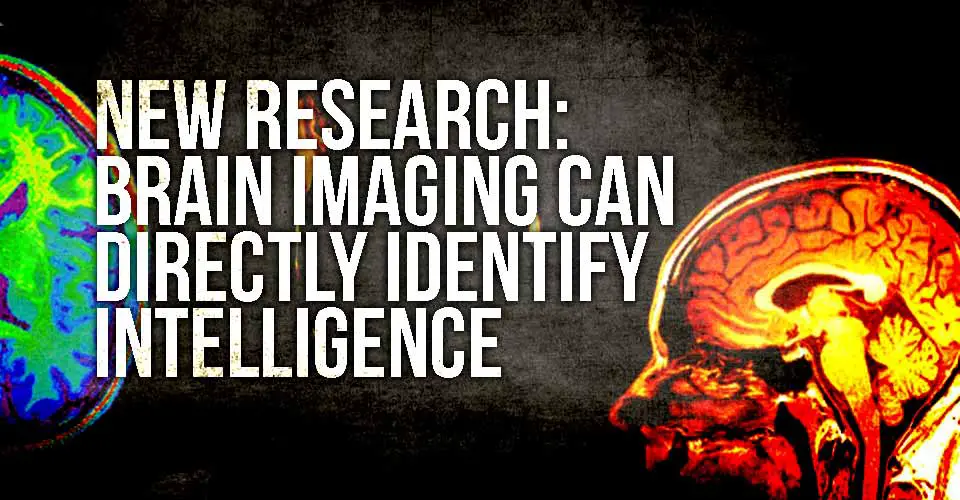
There is a lot that goes into truly understanding a person. Between personality, behavior, and emotions we are all unique individuals. Now, a new study from Yale University is showing that the way our brains work is as unique to each individual as our fingerprints are. By using functional magnetic resonance imaging (fMRI), their research is showing that not only can they create a “cognitive fingerprint” of how our brains work, they can associate those fingerprints with individual intelligence.
Buy an “Intelligence is sexy” t-shirt!
Co-Author of the study Emily Finn says, “In most past studies, fMRI data have been used to draw contrasts between, say, patients and healthy controls. We have learned a lot from these sorts of studies, but they tend to obscure individual differences, which may be important.” The study involved analyzing fMRI scans from 126 participants of the Human Connectome Project, and were able to identify individuals with 99% accuracy based on their unique “cognitive fingerprint”.
Russell Poldrack, a cognitive neuroscientist at Stanford University and advisor to the Human Connectome Project, said in an interview, “Until this, we really didn’t know the extent to which each unique individual has a unique pattern of connectivity.”
Another interesting aspect of the research was the researcher’s ability to assess intelligence based solely on the fMRI data. The data doesn’t necessarily show exactly how smart you are, but there were certain noticeable patterns in the brain activity that directly correlated to how well people performed in intelligence tests. Poldrack claims that “the uniqueness seems to be tied to cognitive function in some way.”
Some people are worried that this new method of identifying the unique patterns in our brains that are associated with intelligence could be used for discriminatory purposes. Imagine a job interview where you’re given a test and scanned with an fMRI to read your brain activity, in lieu of an actual interview. The researchers in this particular study are hoping to identify these unique characteristics in our brain activity for therapeutic purposes. According to Finn, “We have hundreds of drugs for treating neuropsychiatric illness, but there’s still a lot of trial and error and failed treatments. This might be another tool.”


